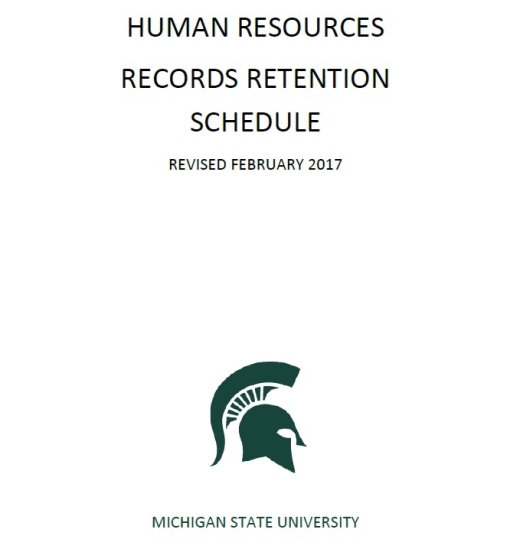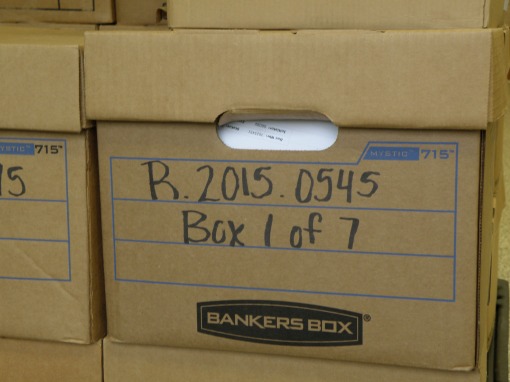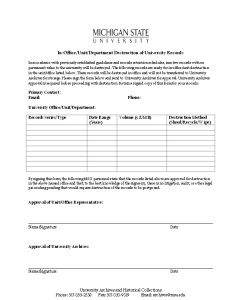The University Archives is excited to announce the publication of the revised Human Resources Records Retention Schedule!

The University’s records retention schedules are the official university policies governing records retention and must be followed by all employees to ensure compliance with institutional, state, and federal regulations. The new Human Resources Records Retention Schedule is the official policy and supersedes any previous Human Resources records retention schedules issued by the University Archives.
All units/offices should review the new schedule and implement it as appropriate. The schedule can be viewed and downloaded online at the University Archives website.
The university’s previous records retention schedules were last revised in the early 1990s, and as such, this newest revision represents a major update to the University’s previous records retention policies.
Major changes in the new Human Resources Records Retention Schedule include:
- Expansion of records series to reflect current business environments
- New record series for SIRS Evaluations, Time Records, Employee Personnel Files, and much, much more!
- Identification of data sources and offices of record
- Alignment of retention schedules with federal and state regulations
- Clearer descriptions of record types for consistent implementation
- New searchable, pdf format- easy to read and use!
Because this new records retention schedule represents a major change for the university, University Archives staff will be available to present on the new HR Records Retention Schedule upon request. A presentation is already scheduled for March 22, 2017 as part of the ADUC program. Additionally, the University Archives is designing video tutorials to discuss the new schedule format and provide campus users with information on the most common record series and retention periods. Those video tutorials will be online soon!
To request a presentation or additional information about the new retention schedule, please contact the University Archives at 517-355-2330 or archives@msu.edu.
Written by Hillary Gatlin, University Records Manager
 Temporary records need to be retained for a specific period of time, and then can be destroyed once the retention period is met. Retention periods are set by the University’s
Temporary records need to be retained for a specific period of time, and then can be destroyed once the retention period is met. Retention periods are set by the University’s 




